Cason: Did any of your assumptions about leadership get challenged during this process?
Jill: Although we felt strongly that we, as elected officials, were charged with making this decision, we were aware that we didn’t know where the membership stood. We were making assumptions about where they stood on some of these issues: about losing money, about whether this was a decision they would support, about how communication could have been different, about whether we should only hold our future conferences at union hotels. And that was an incredibly vulnerable place to be. But all of the people who were in leadership roles for ASTR in 2018 really worked toward being as transparent as possible—opening up the space around the decision-making process and making it feel like it is a responsive one. So that there is dialogue, not just a monologue.
Cason: And that’s what leadership is, right?
Jill: It should be. I think we all feel it when a leader becomes a monologuer. “Wait a minute, you say you’re asking a question, but this is a comment, right?”
Cason: When you made your decision to not cross the picket line public on 24 October, did that arouse any reactions from the hotel or the union?
Jill: There were moments where I very much felt caught between the hotel and the union. We had been very clear from the first conversation with the hotel that we would not hold the conference if they were striking, we would not cross a picket line. And there were a couple of times where they said things that seemed to question whether that was still true, and I said, “No it is.”
Because we were quite clear about where our values were, it seemed sometimes that both sides were hoping we would help shift the other toward resolution more quickly. And the longer we took that principled stand, it did feel like the balance was shifting. But our main interest was always to our membership, never to the hotel or the union.
Cason: ASTR cancelled its contract with the hotel on 9 November and the union accepted a new contract offered by the hotel on 11 November. That certainly feels like a direct result of that principled stand.
Jill: I hope so. I know we weren’t the only group that cancelled contracts, but I do think—and I hope this isn’t just my Pollyannaism—that it makes an impact when organizations like ours stand up and say from the beginning that we will not cross the picket line. It didn’t resolve fast enough to help us, but I think that had an impact on the resolution. The new contract—from what we were told by the union—is a very, very good one. And it is historic in certain ways.
Also, this wasn’t the first time this type of situation has come up for me. There was a conference for the Association for Theatre in Higher Education (ATHE) that was held in the early 2000s at a hotel in San Francisco, and there was a labor strike going on. Anna Deavere Smith was the keynote but she chose not deliver her speech in the hotel; it was staged in another venue. That was a big deal. But other performers and scholars, like me, crossed the picket line at points to get to events and sessions at the hotel. I don’t remember there being as much vocal conversation.
Cason: Is this just a choice that organizations weren’t willing to make ten or fifteen years ago?
Jill: I don’t think it’s that we have more values than people in earlier situations. We talk more about these things, and the conference itself doesn’t feel as hermetically sealed as it did fifteen years ago. And I think it is harder to ignore the circumstances around a conference than perhaps one might have been able to before. Perhaps we were just lucky to have the time and the kind of people at the table or the ability financially to cancel—or the stupidity—and we just made a different decision.
Some working groups, right as we announced the strike, immediately found spaces around the city on their own. People were, as theatre people are, very entrepreneurial, very “the show must go on,” and made it work.
Cason: Do you have any thoughts on why it is harder to ignore these public displays of labor strikes or protests—particularly for us as theatremakers? Is it their visibility in the media or our own social proximity to them?
Jill: I think it is all of that. The discussion about labor, the awareness our organization has about how, as academics, we exist in the world. Conversations at the conference are no longer just about scholarship, they are about how our scholarship interacts with the world, and what it means to be a theatre professor right now. Since I started attending conferences, there definitely has been a difference in the frequency of these kinds of conversations. The volume has increased. And not only the volume, but how we are trying to have the conversations. At all levels.
Cason: This was your last year as vice president of conferences. Do you feel that you have established a legacy for future ASTR leadership to continue having this conversation?
Jill: We had very lengthy executive committee meetings at this conference, much longer than usual, to talk through the lessons of this. There are some ways in which this is going to have long-term impact on the thinking about conference planning. But those won’t impact 2019 or 2020. We already had our contracts built for the next two years prior to this conference, so we can’t actually put contingencies into those contracts now.
However, looking further down the road, the leaders of the San Diego chapter of the union directed us to different sites that give you better language to build into your hotel contracts. We have talked about whether it makes sense to only go to union hotels in the future, to continue to support, because that’s not always the case. There are some cities we wouldn’t be able to go to, given the kind of hotel we need and our organization’s size. What would that mean for determining what cities we go to?
Cason: The cancellation of the official conference threw travel plans for a lot of members into a bit of chaos. However, I appreciated that ASTR was committed to ensuring some type of gathering took place for those who still wanted to come, or, if nothing else, were stuck with non-refundable plane tickets. Out of that came the “alt-conference,” as several of my working-session members were calling it.
Jill: Right. One of the places suggested to reconvene was the campus of University of California, San Diego. We contacted them and asked if they could provide us space so that groups that were still coming and wanted to meet in person had somewhere to meet. And then we planned to have some kind of reception that just allowed us to celebrate together. That is how we got the ASTR Forum (La Jolla). A bit more of a mouthful, but we felt the need to create something official for those members who still had a chance to get their travel reimbursed by their home institutions.

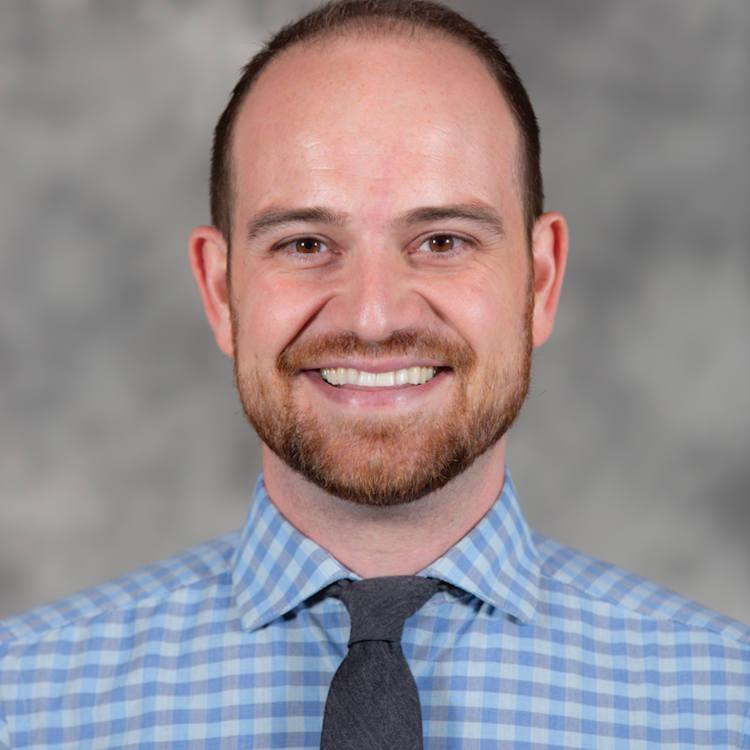
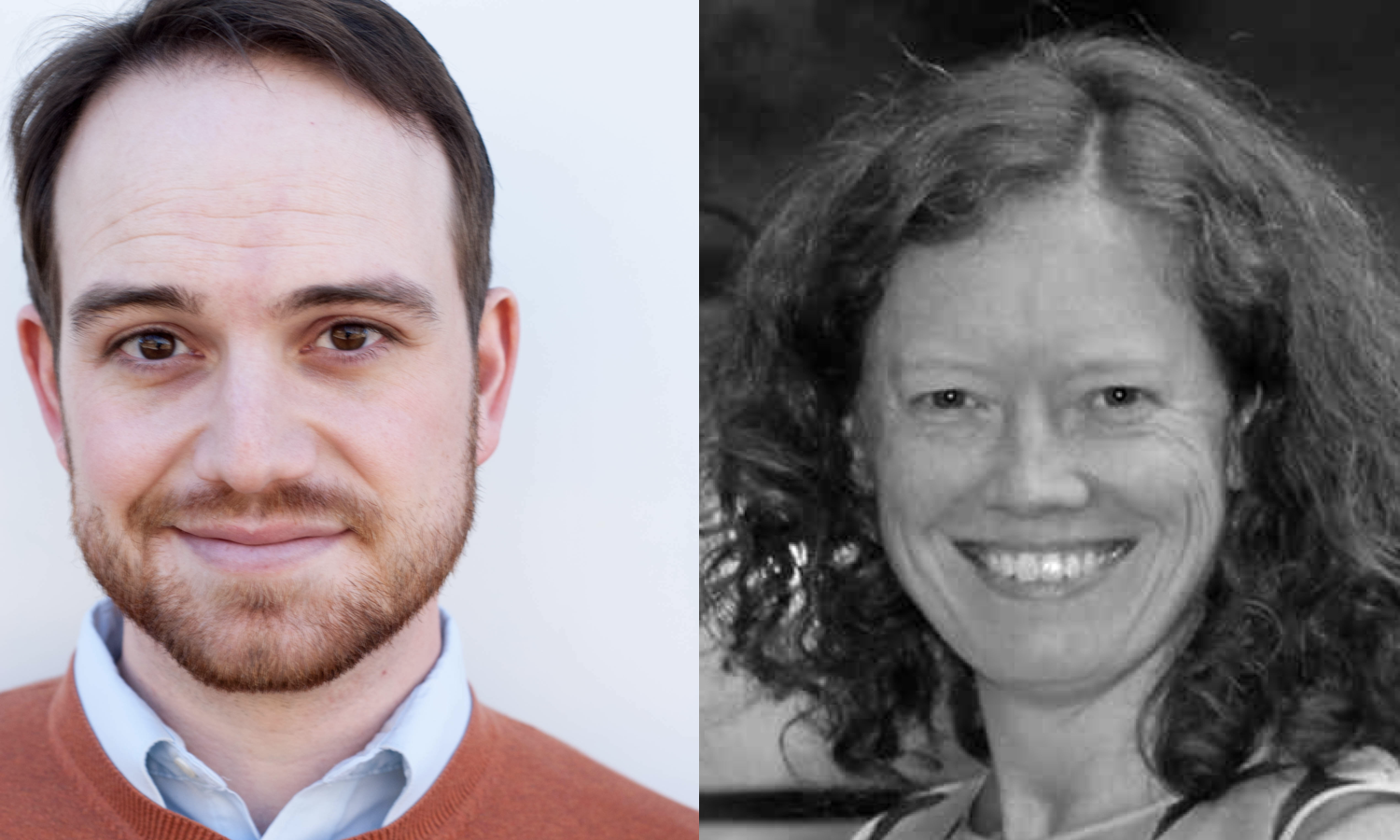
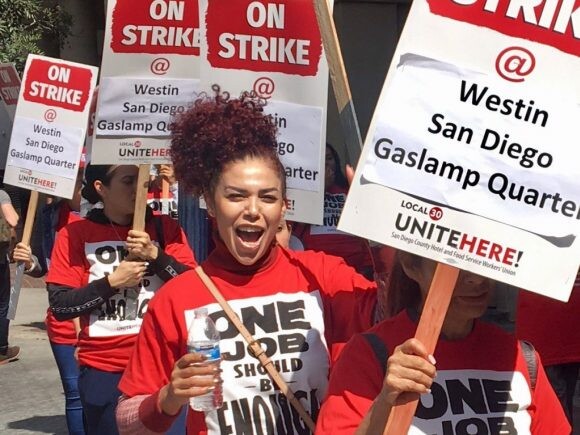
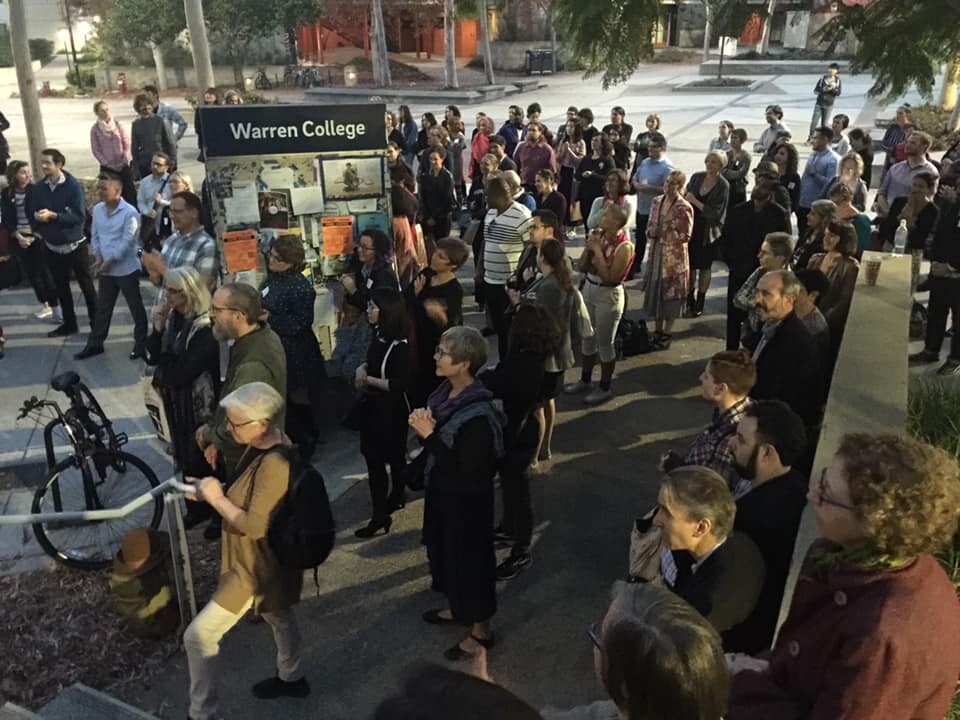
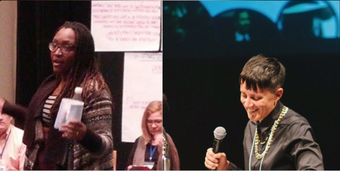



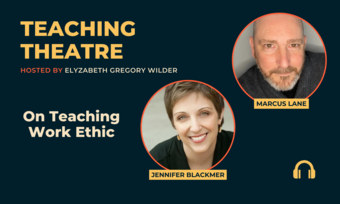



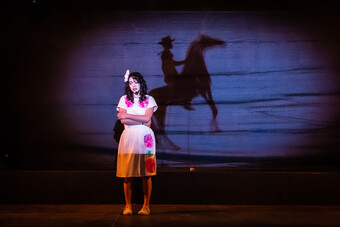


Comments
The article is just the start of the conversation—we want to know what you think about this subject, too! HowlRound is a space for knowledge-sharing, and we welcome spirited, thoughtful, and on-topic dialogue. Find our full comments policy here